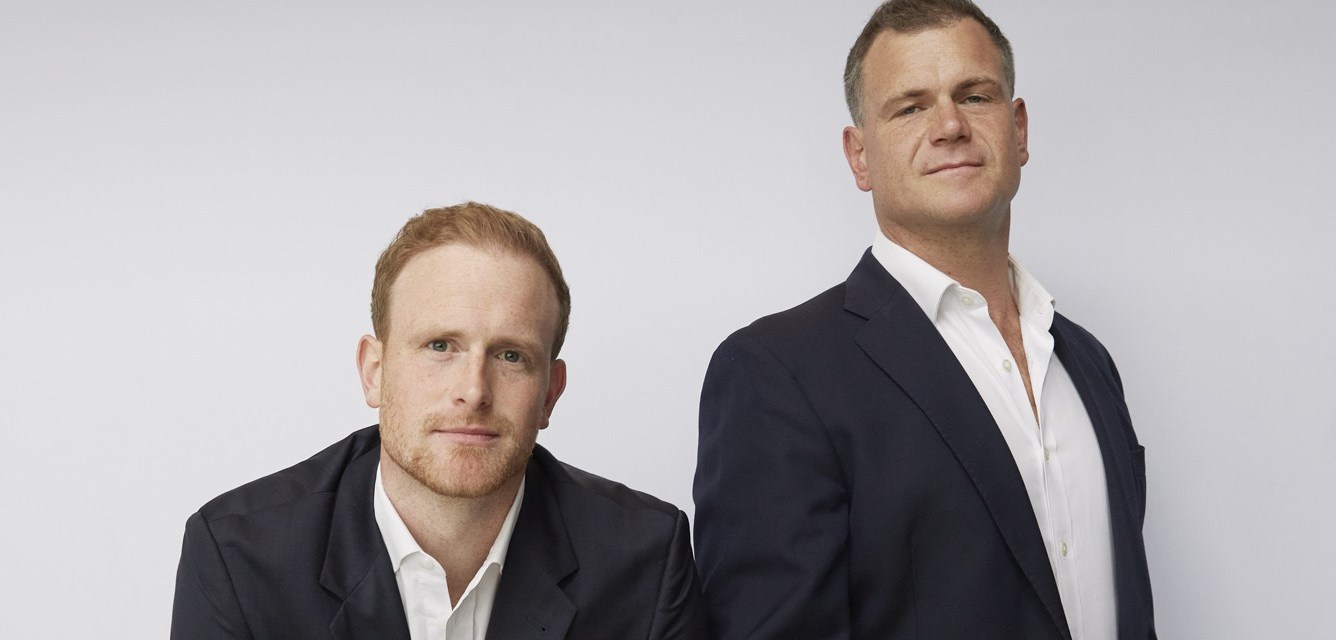The Roberts boys found a way to smooth out their crypto risk and clear their environmental consciences.

IREN founder Daniel Roberts became curious about cryptocurrencies in 2013 when he saw the rise of a new thing called Bitcoin. He and his younger brother Will jumped in and bought when it hit US$1000 a coin, only to see it tank soon after. “What nonsense is this?” They sold at US$500.
But then he and Will got in on a presale of the new cryptocurrency, Ethereum, buying it for next to nothing. They did well. When crypto began its next bull run at the end of 2017, the Roberts boys thought they needed to understand this cryptocurrency better. Daniel went down the rabbit hole, read up on the history of money, and concluded that governments had debased their currencies by printing too much money and concluded it would all end badly.
Bitcoin was “clearly, objectively, the best monetary asset we have ever seen as a human race”, he says.
The brothers were both grownups in the financial world. Will, still in his 20s, was a vice president at Macquarie Group. Daniel, then 32, was co-owner of Palisade Investment partners, which he’d help grow from start-up to having $6 billion in infrastructure assets – airports, ports, wind farms, gas pipelines – under management for super and pension funds.
“Clearly, objectively, the best monetary asset we have ever seen as a human race.”
Daniel Roberts
Daniel noticed that a large chunk of every single meeting with clients was taken up talking about sustainability. He could see this stuff mattered to them. It mattered to him, too.
And while he was convinced of Bitcoin’s inevitable rise, he was also aware of its enormous cost. Bitcoin “mining” – the process in which transactions are verified by independent data centres that are then paid for the service in newly created Bitcoins – requires nine years’ worth of average household electricity consumption to produce just one coin. There’s a new coin minted every ten minutes.
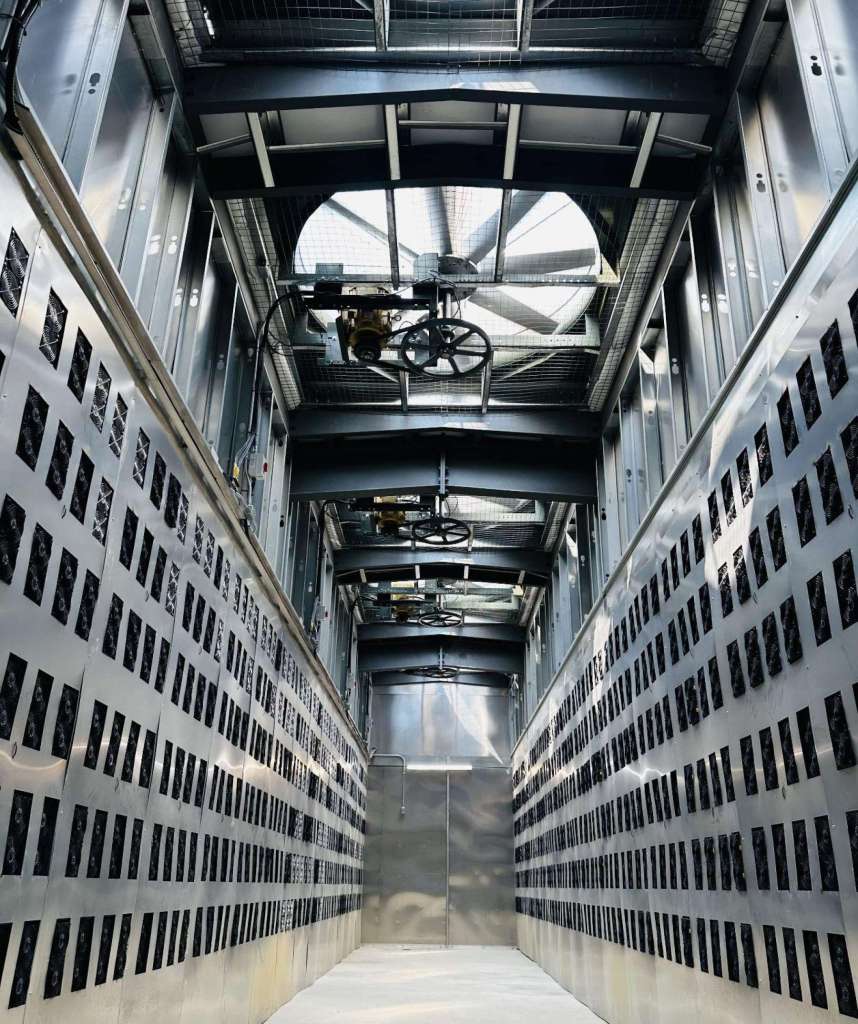
The Roberts brothers wanted to solve this energy problem while increasing their exposure to Bitcoin. In 2018, they quit their day jobs to found Iris Energy.
“We realised that the world was going to crave these power-dense data centres built deliberately for raw processing power,” says Daniel. It was pretty clear that such data centres would have other uses. “Was it AI, high-performance computing, data analytics, machine learning? All these applications didn’t need the bells and whistles of really low-latency, high-tech capital-city data centres that were very expensive. They just required raw power.”
Being cloud-based, such data centres could be located anywhere. So the Roberts brothers donned backpacks and started travelling the world looking for places that had built more renewable energy capacity than they could use – usually helped by well-meaning government subsidies that had distorted the market.
“They’re the company you want to move to your town.”
Mackenzie mayor Joan Atkinson
The brothers were adamant they only wanted electrons that were going to waste, and that they wouldn’t use energy that would otherwise go to mums and dads. “We looked in Europe,” says Daniel. “But the political sensitivity was high. We went to Iceland. We were looking through the lens of ‘what problems could we solve?’ Taking baseload geothermal power in Iceland wasn’t solving a problem for that market. All we were doing was taking power others could use.”
They looked up and down the US. They still get a chuckle out of the scuzzy, windowless hostel where they stayed in New York City. Eventually, they were introduced to a Canadian industrialist, Brian Fehr, and his techie partner, Brian Fry, who’d teamed up to build a data centre adjacent to a shutdown pulp mill in Canal Flats, British Columbia.
“People aren’t buying books and newspapers as much, so the need for paper had fallen, but the government had commissioned a massive expansion in hydro capacity,” says Roberts. “They had this huge oversupply. Now, in a regulated market, which British Columbia is, when there’s an oversupply of power, power prices have to go up because the regulated utility is allowed to earn its regulated return on its investment. The people who use it need to pay for the whole investment.”
The Roberts brothers bought the data centre.
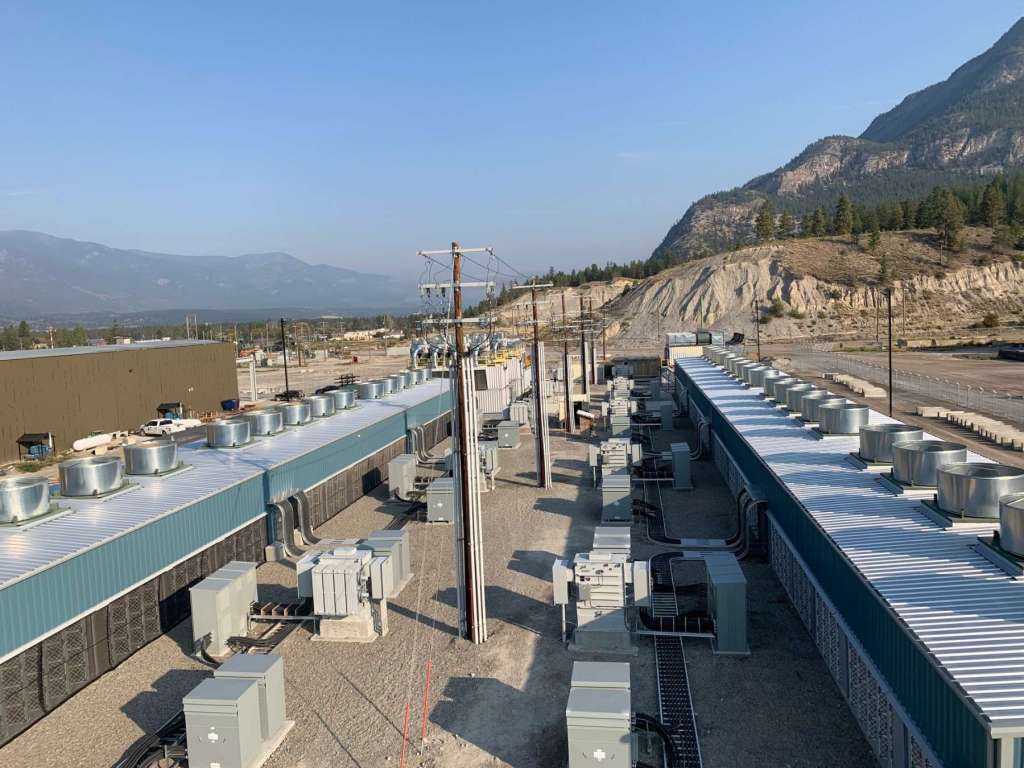
“So we came in and said, ‘Right, we’ll use up this power. We’ll pay your market price for power and put downward pressure on power prices.’ The second thing is we then went into these local communities that have been decimated by the closure of the mills, and we often co-located alongside those pulp and paper mills, leveraging the existing electrical infrastructure, built out our facilities, rehired a bunch of the local workers and retrained them in our data centres.”
Iris Energy also found its way to Mackenzie in British Columbia, population 3,400, which had suffered 450 job losses when the forester, Canfor, and the local pulp mill closed.
“When Iris came to town, none of us even knew what Bitcoin mining was, and I still don’t fully understand it,” Mackenzie mayor Joan Atkinson said. Iris had created 15 direct jobs and five security jobs. “Not huge, but every job counts in a small community like this,” Atkinson says via a phone call.
“They’ve proven themselves right from the get-go to be a very responsible corporate citizen, giving an annual community grant of $100,000 to not-for-profits. That kind of money goes a long way in a small community where people are struggling.
“Both Will and Daniel have come to our community multiple times in the past three years, and they always reach out to me to see how we’re going and what they can do to help. They’re the company you want to move to your town.” And while the power authority, BC Hydro, had previously been encouraging communities like Mackenzie to embrace Bitcoin miners, Atkinson was not aware of any others doing it in the province, and there was now a moratorium on them because of uncertainty about what future power demands might be – plus a two-year drought that has reduced capacity.
In Texas, the Roberts brothers found Childress County, some 400km northwest of the nearest metropolis, Dallas/Fort Worth. “There are 32 gigawatts of wind and solar in that region,” says Roberts. “But the transmission line is only 12 gigawatts to export that load down to Dallas and Houston. The 32 gigawatts were built off government incentives, even though the demand was not there or capable of being met. So we build our facility near that renewable energy and use that power.”
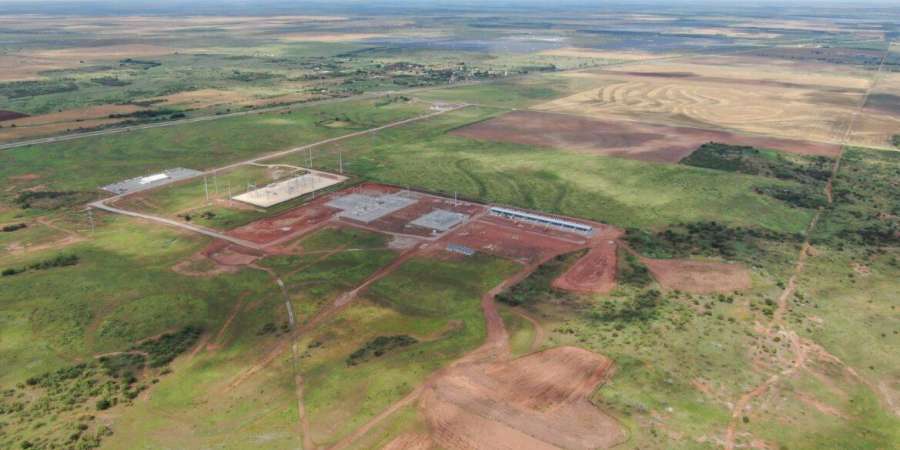
When electricity prices spike beyond a threshold, they automatically shut down Bitcoin mining and sell their power back to the grid, making more money than the mining returns. Similarly, they benefit when there’s excess power in the grid. “Last August, our cost of production for mining Bitcoin was negative $28,000 a coin because we were paid to take the power, and then we sold those Bitcoin for another $28,000.”
It’s telling that when Roberts speaks about his company’s computer power, he measures it in gigawatts, not gigabytes. The company he and Will founded was named Iris Energy rather than, say, Iris Data.
Timing
On November 16, 2021, a week after Bitcoin hit its then all-time high of US$68,789, the Sydney-based Roberts brothers floated Iris Energy on the Nasdaq at US$28 a share – valuing the company at US$1.55 billion.
Days later, Bitcoin plummeted.
“Since 2013, Will and I have lived through a number of Bitcoin drawdowns. So, in terms of the Bitcoin thesis, we were unperturbed – it was business as usual. We know the tide will turn. But it was a challenging time when you were investing other people’s hard-earned money. The Bitcoin price is not within our control, but it doesn’t mean that you don’t feel a huge weight of responsibility to make sure the business navigates a challenging time and comes out the other side.”
After the float, Iris Energy shares trended relentlessly down for the next year, bottoming out at US$1.06 after Christmas 2022.
While Bitcoin was in the doldrums and with AI picking up a huge trade wind, Iris began planning to pivot back to one of the ideas it had touted in its original pitch deck – providing cheap, environmentally friendly processing power for artificial intelligence. So they ordered some NVIDIA H100 GPUs (graphic processing units) and waited for them to arrive.
Facing mortality
Meanwhile, Daniel, now 38 and being told by his mother that he was too old to be still playing Australian rules football, pulled on the boots for another season in 2023. In game one, he got a knock in the back that broke a rib and hurt like hell. He started urinating blood.
It was the luckiest thing that ever happened to him.
“The doctors found a 7cm tumour hanging off my right kidney,” he says. If he hadn’t copped the blow, they might not have found it till it was too late. “They reckoned it hadn’t been there long considering how aggressively it was growing.” There was a lot of time to contemplate the worst. “There are so many unknowns. Has it spread? Is your time up? With five kids under 10, it can be pretty confronting. In a four-week period, Will and I became experts in renal cancer, reading research reports on treatment and variants and how we attack it all. The doctors cut out the whole kidney – pulled it out with a robot, and said, ‘Good riddance!’ They got it all. There’s nothing left, and life goes on, but it’s a big wake-up call.”
“Is there anything more exciting than the macro thematic of the digitisation of the world, the onset of AI, and Bitcoin as a monetary unit?”
Daniel Roberts
Meanwhile, Iris landed its first AI customer, Poolside AI – fresh from a US$126 million funding round – and promptly ordered 568 more NVIDIA chips for US$22 million – which would take them two years to break even on, Roberts says. And he’s confident they’ll pull many more customers. “Everyone’s focused on green … It’s more than box ticking. They can see it’s part of our DNA. And we have a competitive advantage because our dedicated high-performance data centres are so fit for purpose, and they cost a fraction of what normal data centres cost.”
The company had US$146 million in cash reserves with no debt. “We’re growing fast, and we’ll look to spend all of that this year,” says Roberts. “We’re going to increase our Bitcoin capacity almost four times and increase our AI capacity as well. We’ve got homes for all that cash.”
They’ve got their eyes on some electricity assets in Australia and elsewhere. “We’ll update when we have approval to build out the grid connection.”
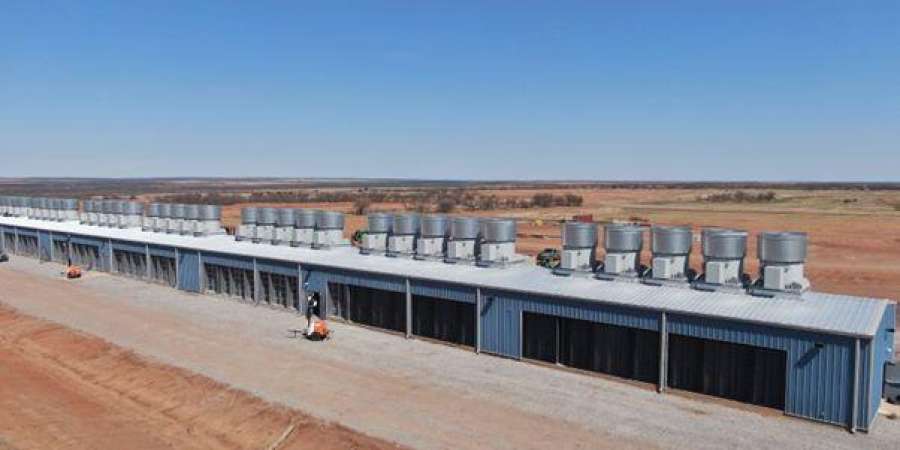
By the time the AI piece was in play, Bitcoin had been enjoying tailwinds since October 2023, and Iris Energy’s prospects were looking much rosier with its now more diversified model.
In January, Iris Energy changed its name to IREN to better reflect that diversification.
Since bottoming at the end of 2022 at almost $1, the IREN share price had risen to around US$9.69 last December, but it has failed to track the rise of Bitcoin on the way up as closely as it matched it on the way down and has spent most of the last six months trading between US$4 and US$7 and at the time of publication had a market capitilisation of US$614 million.
Canaccord Genuity analysis raised its IREN price target from US$8 to US$9 on February 21 after IREN released its latest financial report. Macquarie Equity Research lifted its target from US$8 to US$10, the same figure as Cantor Fitzgerald, HC Wainwright and B. Riley Securities.
JP Morgan lowered its target from US$9.50 to US$8.00 but still rated IREN “overweight” or “undervalued”.
Roberts says he’d always had a you-only-live-once outlook on life. The cancer had only solidified that. “Surround yourself with people that you want to be with. Be present in the moment and be grateful you’re here. We live in this unique time. So many existential threats in humanity’s history have been mitigated. We’ve become complacent to that, and we’re all so busy. You wake up one day and go, ‘Where did that decade go?’ Maybe appreciating the here and now is the best thing to happen to me.”
And that’s why he isn’t slowing down on IREN. “It’s not work for me. It’s a passion. You’re doing it with your brother and at the forefront of where civilisation is going. Is there anything more exciting than the macro thematic of the digitisation of the world, the onset of AI, and Bitcoin as a monetary unit? I get that not everyone will get that, but I think the impact will be profound.”
